Inspirados já nos ensinamentos de Sófocles, aqui, procurar-se-á a conexão, pelo conhecimento, entre o velho e o novo, com seus conflitos. As pistas perseguidas, de modos específicos, continuarão a ser aquelas pavimentadas pelo grego do período clássico (séculos VI e V a.C).
sexta-feira, 4 de março de 2022
PROTOCOLOS DE GUERRA
***
End Of The Beginning - Fim do Começo
***
***
www.icrc.org
As Convenções de Genebra de 12 de agosto de 1949 | Comitê Internacional da Cruz Vermelha
***
Protocols of War
***
General facts, or, if you please, the general laws which facts follow,
are styled principles, whenever it relates to their application; that is to
say, the moment we avail ourselves of them in order to ascertain the
rule of action of any combination of circumstances presented to us.
Jean-Baptiste Say, [1803] 1880, 13,
Programming, of course, means allocation.
Stuart Dreyfus 1956, 3
***
***
Nas entrelinhas: Guerra da Ucrânia torna China ainda mais forte
Publicado em 04/03/2022 - 06:25 Luiz Carlos AzedoBiden, China, Comunicação, Cultura, EUA, França, Guerra, Inglaterra, Memória, Militares, Política, Política, Putin, Reino Unido, Rússia, Tecnologia, Trump, Ucrânia, Xi Jinping
Os chineses levam vantagem com a guerra na Europa, embora a narrativa do ocidente quanto à democracia se aplique, também, à liderança de Pequim
O diplomata e estrategista político Henry Kissinger talvez seja o político do Ocidente que melhor conhece a China, onde esteve cerca de 50 vezes. Seu livro Sobre a China é um best-seller até hoje. A proeza dele como diplomata foi conceber e executar a reaproximação entre os Estados Unidos e a China comunista, construindo uma aliança que seria decisiva para o colapso da antiga União Soviética. Seus críticos, porém, questionam a forma subalterna como trata a questão da democracia e dos direitos humanos na China.
A China demorou para aceitar que não era o centro do mundo e que precisaria se integrar a um sistema internacional liderado pelas potências ocidentais. Isso ocorreu na marra, após ser derrotada militarmente pelo Império Britânico. Sem os mesmos recursos, no entanto, os chineses optaram por convidar outros países europeus a estabelecerem postos comerciais no seu território, para provocar e depois manipular a rivalidade entre eles.
O princípio “derrotar os bárbaros próximos com o auxílio dos bárbaros distantes” foi adotado com êxito pela China. Seu paradigma de diplomacia pode ser comparado aos fundamentos do Wei qi, uma espécie de jogo de gamão, no qual os fatores políticos e psicológicos subordinam os princípios puramente militares no “cerco estratégico”.
Kissinger explorou com competência as divergências existentes, desde a morte de Stalin, entre os líderes soviéticos e a liderança chinesa. Mao Tsé Tung recebeu a visita do presidente Richard Nixon. Estados Unidos e China passaram a ser aliados contra a antiga União Soviética. A aliança americana com o regime nacionalista em Taiwan passou à condição subalterna, e o trauma da Guerra da Coreia foi relevado.
Mao, Zhou Enlai e Deng Xiaoping foram interlocutores privilegiados de Kissinger, que também se relacionou com Zhao Zyiang, Jiang Zemin e Qian Quichen, a geração nova de reformadores. Por uma ordem internacional mais estável, num mundo repleto de armas nucleares, a China foi aceita no Conselho de Segurança da ONU.
A guerra de seis semanas da China contra o Vietnã, em 1979, foi um subproduto dessa mudança. Pequim conteve o desejo vietnamita de montar um bloco com Camboja e Laos. Após o massacre da Praça da Paz Celestial, em 1989, em que jovens estudantes pediam abertura política, Xiaoping iniciou um processo de reformas capitalistas que, no curto espaço de 30 anos, elevaram a China ao status de segunda potência econômica do planeta.
No mundo globalizado, o eixo do comércio deslocou-se do Atlântico para o Pacífico. O governo chinês se tornou um dos fiadores da ordem mundial como uma grande potência pacífica. Entretanto, eleito presidente dos Estados Unidos, Donald Trump, amigo de Vladimir Putin, resolveu escalar uma guerra comercial com a China e se aproximar da Federação Russa.
Guerra fria
Joe Biden assume a Presidência com uma equipe diplomática disposta a restabelecer a hegemonia absoluta dos Estados Unidos na política mundial, a partir da aliança com o Canadá e o Reino Unido, escalando o conflito da Otan com a Federação Russa em torno da Ucrânia. No lugar do mundo multipolar que se esboçava a partir da liderança da Alemanha e da França na União Europeia, ressurge uma guerra fria, que se torna guerra quente com a invasão da Ucrânia e, com a ajuda da agressividade de Putin, arrasta toda a União Europeia para o confronto. O eixo da política internacional deixa de ser o comércio e a cooperação e passa a ser a defesa da democracia e dos valores liberais como narrativa para nova corrida armamentista.
Com a guerra da Ucrânia, a Rússia passa a depender cada vez mais da China. Porém, enquanto Putin joga xadrez e busca a vitória total em termos geopolíticos, Xi Jinping, o líder chinês, segue os princípios do Wei qi e mantém sua estratégia focada na integração às cadeias de produção e de comércio mundial, nas quais os Estados Unidos continuam sendo a força mais importante — estão aí as sanções econômicas contra a Rússia —, mas em declínio.
A China leva vantagem com a guerra da Ucrânia, embora a narrativa do Ocidente quanto à democracia se aplique também ao regime comunista chinês. Com a exclusão da Rússia do sistema Swift, ou seja, do sistema de mensagens interbancárias, por exemplo, os bancos russos se socorreram no sistema de pagamentos interbancários transfronteiriços (Cips), criado pela China em 2015.
Os chineses não apoiam as sanções econômicas e se abstiveram de condenar a agressão russa à Ucrânia na ONU.
O sistema Cips é usado para liquidar créditos e trocas internacionais de yuans na chamada Rota da Seda. Permite que os bancos globais realizem transações internacionais em yuan. Somente no ano passado, o sistema processou cerca de 80 trilhões de yuans (US$ 12,68 trilhões), um aumento de 75% em relação ao ano anterior. Em janeiro, 1.280 instituições financeiras de 103 países e regiões fizeram login no sistema chinês. O yuan pode sair dessa crise como uma moeda internacional.
Compartilhe:
*****************************
Opinions
Henry Kissinger: To settle the Ukraine crisis, start at the end
By Henry A. KissingerMarch 5, 2014
Henry A. Kissinger was secretary of state from 1973 to 1977.
Public discussion on Ukraine is all about confrontation. But do we know where we are going? In my life, I have seen four wars begun with great enthusiasm and public support, all of which we did not know how to end and from three of which we withdrew unilaterally. The test of policy is how it ends, not how it begins.
Far too often the Ukrainian issue is posed as a showdown: whether Ukraine joins the East or the West. But if Ukraine is to survive and thrive, it must not be either side’s outpost against the other — it should function as a bridge between them.
Russia must accept that to try to force Ukraine into a satellite status, and thereby move Russia’s borders again, would doom Moscow to repeat its history of self-fulfilling cycles of reciprocal pressures with Europe and the United States.
The West must understand that, to Russia, Ukraine can never be just a foreign country. Russian history began in what was called Kievan-Rus. The Russian religion spread from there. Ukraine has been part of Russia for centuries, and their histories were intertwined before then. Some of the most important battles for Russian freedom, starting with the Battle of Poltava in 1709 , were fought on Ukrainian soil. The Black Sea Fleet — Russia’s means of projecting power in the Mediterranean — is based by long-term lease in Sevastopol, in Crimea. Even such famed dissidents as Aleksandr Solzhenitsyn and Joseph Brodsky insisted that Ukraine was an integral part of Russian history and, indeed, of Russia.
The European Union must recognize that its bureaucratic dilatoriness and subordination of the strategic element to domestic politics in negotiating Ukraine’s relationship to Europe contributed to turning a negotiation into a crisis. Foreign policy is the art of establishing priorities.
The Ukrainians are the decisive element. They live in a country with a complex history and a polyglot composition. The Western part was incorporated into the Soviet Union in 1939 , when Stalin and Hitler divided up the spoils. Crimea, 60 percent of whose population is Russian , became part of Ukraine only in 1954 , when Nikita Khrushchev, a Ukrainian by birth, awarded it as part of the 300th-year celebration of a Russian agreement with the Cossacks. The west is largely Catholic; the east largely Russian Orthodox. The west speaks Ukrainian; the east speaks mostly Russian. Any attempt by one wing of Ukraine to dominate the other — as has been the pattern — would lead eventually to civil war or break up. To treat Ukraine as part of an East-West confrontation would scuttle for decades any prospect to bring Russia and the West — especially Russia and Europe — into a cooperative international system.
Ukraine has been independent for only 23 years; it had previously been under some kind of foreign rule since the 14th century. Not surprisingly, its leaders have not learned the art of compromise, even less of historical perspective. The politics of post-independence Ukraine clearly demonstrates that the root of the problem lies in efforts by Ukrainian politicians to impose their will on recalcitrant parts of the country, first by one faction, then by the other. That is the essence of the conflict between Viktor Yanukovych and his principal political rival, Yulia Tymoshenko. They represent the two wings of Ukraine and have not been willing to share power. A wise U.S. policy toward Ukraine would seek a way for the two parts of the country to cooperate with each other. We should seek reconciliation, not the domination of a faction.
Russia and the West, and least of all the various factions in Ukraine, have not acted on this principle. Each has made the situation worse. Russia would not be able to impose a military solution without isolating itself at a time when many of its borders are already precarious. For the West, the demonization of Vladimir Putin is not a policy; it is an alibi for the absence of one.
Putin should come to realize that, whatever his grievances, a policy of military impositions would produce another Cold War. For its part, the United States needs to avoid treating Russia as an aberrant to be patiently taught rules of conduct established by Washington. Putin is a serious strategist — on the premises of Russian history. Understanding U.S. values and psychology are not his strong suits. Nor has understanding Russian history and psychology been a strong point of U.S. policymakers.
Leaders of all sides should return to examining outcomes, not compete in posturing. Here is my notion of an outcome compatible with the values and security interests of all sides:
1. Ukraine should have the right to choose freely its economic and political associations, including with Europe.
2. Ukraine should not join NATO, a position I took seven years ago, when it last came up.
3. Ukraine should be free to create any government compatible with the expressed will of its people. Wise Ukrainian leaders would then opt for a policy of reconciliation between the various parts of their country. Internationally, they should pursue a posture comparable to that of Finland. That nation leaves no doubt about its fierce independence and cooperates with the West in most fields but carefully avoids institutional hostility toward Russia.
4. It is incompatible with the rules of the existing world order for Russia to annex Crimea. But it should be possible to put Crimea’s relationship to Ukraine on a less fraught basis. To that end, Russia would recognize Ukraine’s sovereignty over Crimea. Ukraine should reinforce Crimea’s autonomy in elections held in the presence of international observers. The process would include removing any ambiguities about the status of the Black Sea Fleet at Sevastopol.
These are principles, not prescriptions. People familiar with the region will know that not all of them will be palatable to all parties. The test is not absolute satisfaction but balanced dissatisfaction. If some solution based on these or comparable elements is not achieved, the drift toward confrontation will accelerate. The time for that will come soon enough.
Read more on this issue:
Skip to main content
Opinions
Editorial Board
The Opinions Essay
Global Opinions
Voices Across America
Post Opinión
D.C., Md. & Va.
Cartoons
Podcasts
Opinions
Henry Kissinger: To settle the Ukraine crisis, start at the end
By Henry A. KissingerMarch 5, 2014
Henry A. Kissinger was secretary of state from 1973 to 1977.
Public discussion on Ukraine is all about confrontation. But do we know where we are going? In my life, I have seen four wars begun with great enthusiasm and public support, all of which we did not know how to end and from three of which we withdrew unilaterally. The test of policy is how it ends, not how it begins.
Far too often the Ukrainian issue is posed as a showdown: whether Ukraine joins the East or the West. But if Ukraine is to survive and thrive, it must not be either side’s outpost against the other — it should function as a bridge between them.
Russia must accept that to try to force Ukraine into a satellite status, and thereby move Russia’s borders again, would doom Moscow to repeat its history of self-fulfilling cycles of reciprocal pressures with Europe and the United States.
The West must understand that, to Russia, Ukraine can never be just a foreign country. Russian history began in what was called Kievan-Rus. The Russian religion spread from there. Ukraine has been part of Russia for centuries, and their histories were intertwined before then. Some of the most important battles for Russian freedom, starting with the Battle of Poltava in 1709 , were fought on Ukrainian soil. The Black Sea Fleet — Russia’s means of projecting power in the Mediterranean — is based by long-term lease in Sevastopol, in Crimea. Even such famed dissidents as Aleksandr Solzhenitsyn and Joseph Brodsky insisted that Ukraine was an integral part of Russian history and, indeed, of Russia.
Tom Toles goes global
View Photos
A collection of cartoons about international news.
The European Union must recognize that its bureaucratic dilatoriness and subordination of the strategic element to domestic politics in negotiating Ukraine’s relationship to Europe contributed to turning a negotiation into a crisis. Foreign policy is the art of establishing priorities.
The Ukrainians are the decisive element. They live in a country with a complex history and a polyglot composition. The Western part was incorporated into the Soviet Union in 1939 , when Stalin and Hitler divided up the spoils. Crimea, 60 percent of whose population is Russian , became part of Ukraine only in 1954 , when Nikita Khrushchev, a Ukrainian by birth, awarded it as part of the 300th-year celebration of a Russian agreement with the Cossacks. The west is largely Catholic; the east largely Russian Orthodox. The west speaks Ukrainian; the east speaks mostly Russian. Any attempt by one wing of Ukraine to dominate the other — as has been the pattern — would lead eventually to civil war or break up. To treat Ukraine as part of an East-West confrontation would scuttle for decades any prospect to bring Russia and the West — especially Russia and Europe — into a cooperative international system.
Ukraine has been independent for only 23 years; it had previously been under some kind of foreign rule since the 14th century. Not surprisingly, its leaders have not learned the art of compromise, even less of historical perspective. The politics of post-independence Ukraine clearly demonstrates that the root of the problem lies in efforts by Ukrainian politicians to impose their will on recalcitrant parts of the country, first by one faction, then by the other. That is the essence of the conflict between Viktor Yanukovych and his principal political rival, Yulia Tymoshenko. They represent the two wings of Ukraine and have not been willing to share power. A wise U.S. policy toward Ukraine would seek a way for the two parts of the country to cooperate with each other. We should seek reconciliation, not the domination of a faction.
Russia and the West, and least of all the various factions in Ukraine, have not acted on this principle. Each has made the situation worse. Russia would not be able to impose a military solution without isolating itself at a time when many of its borders are already precarious. For the West, the demonization of Vladimir Putin is not a policy; it is an alibi for the absence of one.
Putin should come to realize that, whatever his grievances, a policy of military impositions would produce another Cold War. For its part, the United States needs to avoid treating Russia as an aberrant to be patiently taught rules of conduct established by Washington. Putin is a serious strategist — on the premises of Russian history. Understanding U.S. values and psychology are not his strong suits. Nor has understanding Russian history and psychology been a strong point of U.S. policymakers.
Leaders of all sides should return to examining outcomes, not compete in posturing. Here is my notion of an outcome compatible with the values and security interests of all sides:
1. Ukraine should have the right to choose freely its economic and political associations, including with Europe.
The best editorial cartoons of 2014 (so far)
View Photos
A collection of cartoons from around the country.
2. Ukraine should not join NATO, a position I took seven years ago, when it last came up.
3. Ukraine should be free to create any government compatible with the expressed will of its people. Wise Ukrainian leaders would then opt for a policy of reconciliation between the various parts of their country. Internationally, they should pursue a posture comparable to that of Finland. That nation leaves no doubt about its fierce independence and cooperates with the West in most fields but carefully avoids institutional hostility toward Russia.
4. It is incompatible with the rules of the existing world order for Russia to annex Crimea. But it should be possible to put Crimea’s relationship to Ukraine on a less fraught basis. To that end, Russia would recognize Ukraine’s sovereignty over Crimea. Ukraine should reinforce Crimea’s autonomy in elections held in the presence of international observers. The process would include removing any ambiguities about the status of the Black Sea Fleet at Sevastopol.
These are principles, not prescriptions. People familiar with the region will know that not all of them will be palatable to all parties. The test is not absolute satisfaction but balanced dissatisfaction. If some solution based on these or comparable elements is not achieved, the drift toward confrontation will accelerate. The time for that will come soon enough.
Read more on this issue:
Condoleezza Rice: The U.S. must lead again
Editorial: The West must resist Putin’s gambits in Ukraine
Zbigniew Brzezinski: How to respond to Putin’s aggression
Fred Hiatt: Making Putin pay
Anne Applebaum: Russia’s enablers in the West
Eugene Robinson: Who is the U.S. to criticize Russia’s actions?
https://www.washingtonpost.com/opinions/henry-kissinger-to-settle-the-ukraine-crisis-start-at-the-end/2014/03/05/46dad868-a496-11e3-8466-d34c451760b9_story.html
************************************************************************
***
Klein 5/14/2007 1
Cold War, Dynamic Programming, and
the Science of Economizing:
Bellman Strikes Gold in Policy Space1
Judy L. Klein
Professor of Economics
Mary Baldwin College
Staunton, VA 24401 USA
jklein@mbc.edu
For Presentation at the First Annual Conference on the
History of Recent Economics (HISRECO)
University of Paris X -Nanterre, France
21-23 June 2007
General facts, or, if you please, the general laws which facts follow,
are styled principles, whenever it relates to their application; that is to
say, the moment we avail ourselves of them in order to ascertain the
rule of action of any combination of circumstances presented to us.
Jean-Baptiste Say, [1803] 1880, 13,
Programming, of course, means allocation.
Stuart Dreyfus 1956, 3
The theory of mathematical programming is largely the theory of
duality…. Duality has two faces. One the one hand, it has contributed
significantly to computational methods…. On the other hand, duality
has contributed almost all of the significant economic interpretations.
H. W. Kuhn 1968, 50
How Applied Mathematics became a Science of Economizing
The title of this introductory section plays on the title of E. Roy Weintraub‘s book on
How Economics became a Mathematical Science. Weintraub (2002), Philip Mirowski
(2002), Robert Leonard (forthcoming), Esther Mirjam Sent (1997), and other authors
in John Davis‘s (1997) and Mary Morgan and Malcolm Rutherford‘s (1998) edited
volumes, have emphasized the economist‘s appropriation and adaptation of
1 A grant from the U. S. National Science Foundation (proposal No. 0137158) made possible research
on this chapter from my book on Protocols of War. I am also grateful to the archives of the RAND
Corporation for making available copies of Research Memoranda from their early years. Please do not
reproduce or quote from this paper without my permission.
http://citeseerx.ist.psu.edu/viewdoc/download?doi=10.1.1.330.5016&rep=rep1&type=pdf
*************************************************************************************
The Geneva Conventions of 1949 and their Additional Protocols
Article01 JANUARY 2014
***
***
The Geneva Conventions of 1949 and their Additional Protocols
What’s 70 years old? Has saved millions of lives? And, continues to protect people? The Geneva Conventions.
The Geneva Conventions and their Additional Protocols are international treaties that contain the most important rules limiting the barbarity of war. They protect people who do not take part in the fighting (civilians, medics, aid workers) and those who can no longer fight (wounded, sick and shipwrecked troops, prisoners of war).
The Geneva Conventions – one of humanity's most important accomplishments of the last century - are turning 70 on 12 August 2019. It's a moment to celebrate all the lives the conventions have helped save, note the further work that needs to be done and to remind the world of the importance of protecting people from the worst of warfare.
The Geneva Conventions and their Additional Protocols are at the core of international humanitarian law, the body of international law that regulates the conduct of armed conflict and seeks to limit its effects. They specifically protect people who are not taking part in the hostilities (civilians, health workers and aid workers) and those who are no longer participating in the hostilities, such as wounded, sick and shipwrecked soldiers and prisoners of war. The Conventions and their Protocols call for measures to be taken to prevent or put an end to all breaches. They contain stringent rules to deal with what are known as "grave breaches". Those responsible for grave breaches must be sought, tried or extradited, whatever nationality they may hold.
The 1949 Geneva Conventions
The First Geneva Convention protects wounded and sick soldiers on land during war.
This Convention represents the fourth updated version of the Geneva Convention on the wounded and sick following those adopted in 1864, 1906 and 1929. It contains 64 articles. These provide protection for the wounded and sick, but also for medical and religious personnel, medical units and medical transports. The Convention also recognizes the distinctive emblems. It has two annexes containing a draft agreement relating to hospital zones and a model identity card for medical and religious personnel.
Text of the First Geneva Convention>
The Second Geneva Convention protects wounded, sick and shipwrecked military personnel at sea during war.
This Convention replaced Hague Convention of 1907 for the Adaptation to Maritime Warfare of the Principles of the Geneva Convention. It closely follows the provisions of the first Geneva Convention in structure and content. It has 63 articles specifically applicable to war at sea. For example, it protects hospital ships. It has one annex containing a model identity card for medical and religious personnel.
Text of the Second Geneva Convention>
The Third Geneva Convention applies to prisoners of war.
This Convention replaced the Prisoners of War Convention of 1929. It contains 143 articles whereas the 1929 Convention had only 97. The categories of persons entitled to prisoner of war status were broadened in accordance with Conventions I and II. The conditions and places of captivity were more precisely defined, particularly with regard to the labour of prisoners of war, their financial resources, the relief they receive, and the judicial proceedings instituted against them. The Convention establishes the principle that prisoners of war shall be released and repatriated without delay after the cessation of active hostilities. The Convention has five annexes containing various model regulations and identity and other cards.
Text of the Third Geneva Convention>
The Fourth Geneva Convention protects civilians, including those in occupied territory.
The Geneva Conventions, which were adopted before 1949. were concerned with combatants only, not with civilians. The events of World War II showed the disastrous consequences of the absence of a convention for the protection of civilians in wartime. The Convention adopted in 1949 takes account of the experiences of World War II. It is composed of 159 articles. It contains a short section concerning the general protection of populations against certain consequences of war, without addressing the conduct of hostilities, as such, which was later examined in the Additional Protocols of 1977. The bulk of the Convention deals with the status and treatment of protected persons, distinguishing between the situation of foreigners on the territory of one of the parties to the conflict and that of civilians in occupied territory. It spells out the obligations of the Occupying Power vis-à-vis the civilian population and contains detailed provisions on humanitarian relief for populations in occupied territory. It also contains a specific regime for the treatment of civilian internees. It has three annexes containing a model agreement on hospital and safety zones, model regulations on humanitarian relief and model cards.
Text of the Fourth Geneva Convention>
Common Article 3
Article 3, common to the four Geneva Conventions, marked a breakthrough, as it covered, for the first time, situations of non-international armed conflicts. These types of conflicts vary greatly. They include traditional civil wars, internal armed conflicts that spill over into other States or internal conflicts in which third States or a multinational force intervenes alongside the government. Common Article 3 establishes fundamental rules from which no derogation is permitted. It is like a mini-Convention within the Conventions as it contains the essential rules of the Geneva Conventions in a condensed format and makes them applicable to conflicts not of an international character:
It requires humane treatment for all persons in enemy hands, without any adverse distinction. It specifically prohibits murder, mutilation, torture, cruel, humiliating and degrading treatment, the taking of hostages and unfair trial.
It requires that the wounded, sick and shipwrecked be collected and cared for.
It grants the ICRC the right to offer its services to the parties to the conflict.
It calls on the parties to the conflict to bring all or parts of the Geneva Conventions into force through so-called special agreements.
It recognizes that the application of these rules does not affect the legal status of the parties to the conflict.
Given that most armed conflicts today are non-international, applying Common Article 3 is of the utmost importance. Its full respect is required.
Where do the Geneva Conventions apply?
The Geneva Conventions have been ratified by all States and are universally applicable.
States Party to the Geneva Conventions>
The Additional Protocols to the Geneva Conventions
In the two decades that followed the adoption of the Geneva Conventions, the world witnessed an increase in the number of non-international armed conflicts and wars of national liberation. In response, two Protocols Additional to the four 1949 Geneva Conventions were adopted in 1977. They strengthen the protection of victims of international (Protocol I) and non-international (Protocol II) armed conflicts and place limits on the way wars are fought. Protocol II was the first-ever international treaty devoted exclusively to situations of non-international armed conflicts.
In 2005, a third Additional Protocol was adopted creating an additional emblem, the Red Crystal, which has the same international status as the Red Cross and Red Crescent emblems.
Text of Additional Protocol I (international conflicts) and its Commentary>
Text of Additional Protocol II (non-international conflicts) and its Commentary>
Text of Additional Protocol III (additional distinctive emblem) and its Commentary>
https://www.icrc.org/en/document/geneva-conventions-1949-additional-protocols
****************************************************************************************
***
End Of The Beginning
Black Sabbath
Ouça End Of The Beginnin…
End Of The Beginning
Is this the end of the beginning?
Or the beginning of the end?
Losing control or are you winning?
Is your life real or just pretend?
Reanimation of the sequence
Rewinds the future to the past
To find the source of the solution
The system has to be recast
Release your mind
Fast forward to the secrets of your code
Your life's on overload
Delete or save, the units that make you an entity
That's your identity
If you don't know
Which way to go
You may feel lost and confused
A second chance
Your time to lose
Regeneration of your cyber sonic soul
Transformed time and space beyond control
Rise up, resist and be the master of your fate
Don't look back live for today
Tomorrow is too late
You don't wanna be a robot ghost
Occupying inside the human host
Analyzed and cloned endlessly
Synthesized until they set you free
Alright okay alright
Till they set you free
Alright okay alright
Till they set you free
I don't see you
I don't wanna see you
Fim do Começo
É este o fim do começo?
Ou o começo do fim?
Perdendo o controle ou você está ganhando?
É a sua vida real ou apenas fingimento?
Reanimação da sequência
Retrocede o futuro para o passado.
Para encontrar a fonte da solução;
O sistema tem que se refeito.
Liberte sua mente.
Processe rápido os segredos do seu código
Sua vida está em sobrecarga.
Delete ou salve, as unidades que fazem sua personalidade
Essa é sua identidade
Se você não sabe
Que caminho seguir
Você pode estar se sentindo perdido e confuso
Uma segunda chance
Sua vez para perder
Regeneração da sua alma sonora cibernética.
Transformando tempo e espaço além do controle
Levante-se, resista para ser o dono de seu destino
Não olhe para trás, viva o dia de hoje
Amanha é tarde demais
Você não quer ser um fantasma robô
Ocupando dentro do hospedeiro humano
Analize e venha para sempre
Ficará preso até que eles te libertem
Tudo bem, tudo bem, tudo bem
Até que te libertem
Tudo bem, tudo bem, tudo bem
Até que te libertem
Eu não vejo você
Eu não quero ver você
Ouça End Of The Beginnin…
Composição: Brad Wilk / Geezer Butler / Tony Iommi.
https://www.letras.mus.br/black-sabbath/end-of-the-beginning/traducao.html
******************************************************************************
SENSACIONALISTA
O jornal isento de verdade. Fundado em 2009.
SENSACIONALISTA
HUMOR
***
***
Bolsonaro oferece asilo político para estátua de cera de Putin
Por Sensacionalista
03/03/2022 • 12:17
Presidente Putin de cera, a cara nem derretePresidente Putin de cera, a cara nem derrete | Divulgação
O presidente Vladmir Putin foi surpreendido com a notícia de que sua estátua havia sido retirada do Museu de cera de Gramado. No que descreveu como a mais dura sanção recebida até agora, o presidente russo pode contar com a solidariedade de seu aliado Jair Bolsonaro, que prontamente ofereceu asilo político para o boneco de cera. Segundo fontes, a estátua ficará no palácio da Alvorada, nos aposentos do presidente.
**************************************************************
***
Nessa guerra precisamos ter lado | Ponto de Partida
14.258 visualizaçõesEstreou há 17 horas
***
Meio
108 mil inscritos
É difícil escolher em que lado estar na Segunda Guerra Mundial? Também não é difícil escolher o lado nesta guerra. Esqueçam Estados Unidos ou mesmo a OTAN. A invasão da Ucrânia mexe com todo mundo, inclusive nós aqui no Brasil. E o que existe de real é simples: a maior potência nuclear do planeta invadiu o vizinho que abriu mão de todo seu arsenal nuclear faz trinta anos. Abriu mão para não ser atacado.
___
PONTO DE PARTIDA
https://www.youtube.com/watch?v=VAFtm1kP01o
Segundas e quintas-feiras, às 18h15, no YouTube
Assinar:
Postar comentários (Atom)


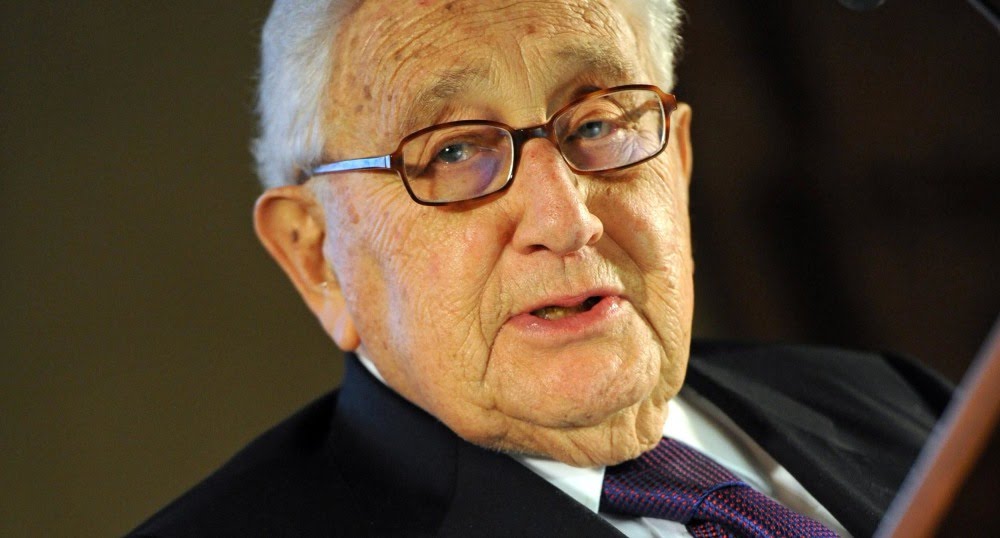



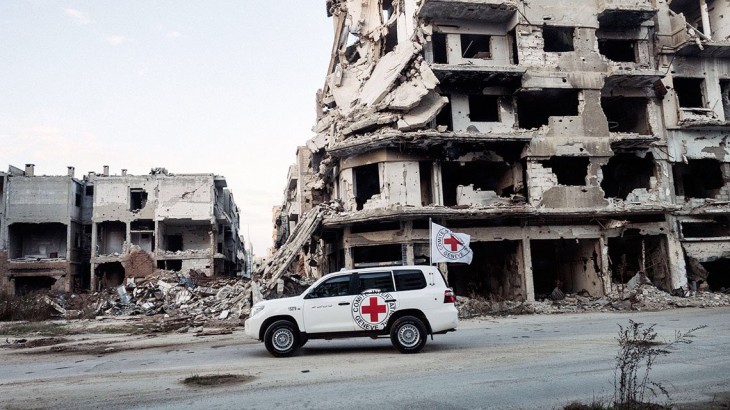
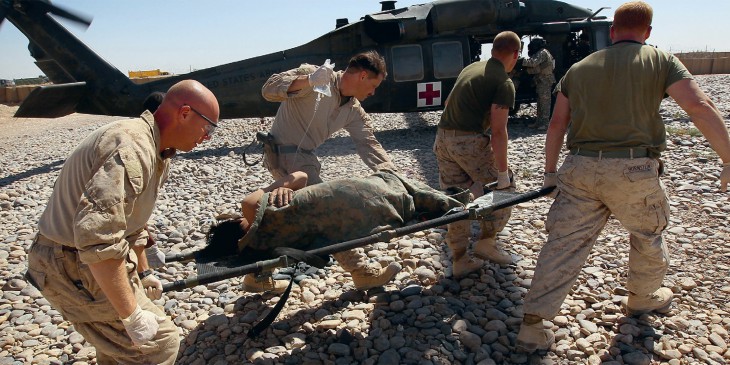
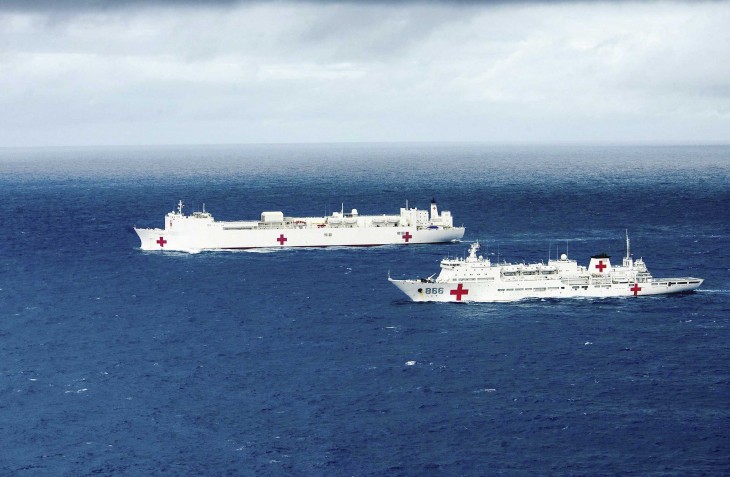
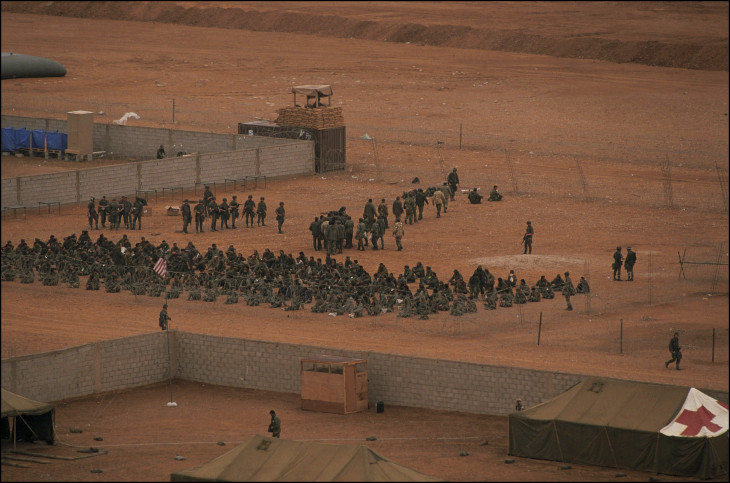
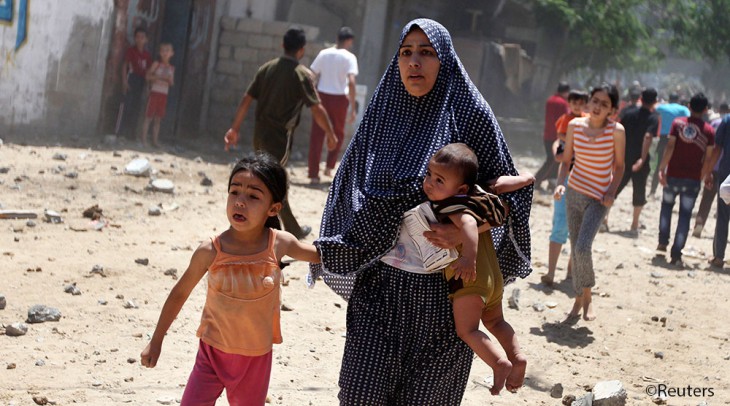

Nenhum comentário:
Postar um comentário